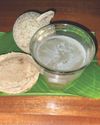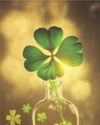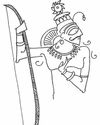
Swami Vivekananda, referring to this Sutra, says that this is Sankhya philosophy. We have seen from the same philosophy that everything from the lowest form up to intelligence is nature. Beyond nature are Purushas (souls) which have no qualities. Then how does the soul appear to be happy or unhappy? By reflection. If a red flower is put near a piece of pure crystal, the crystal appears to be red. Similarly, the appearance of happiness or unhappiness of the soul is but a reflection. The soul itself has no colouring. The soul is separate from nature. Sankhya says that intelligence is a compound, it grows and lessens, i.e. it changes just as a body changes, and that its nature is nearly the same as that of a body. Intelligence is like a fingernail to a body. It lasts for an extremely long period of time, while this body can be purged off or thrown off.
This story is from the {{IssueName}} edition of {{MagazineName}}.
Start your 7-day Magzter GOLD free trial to access thousands of curated premium stories, and 9,000+ magazines and newspapers.
Already a subscriber ? Sign In
This story is from the {{IssueName}} edition of {{MagazineName}}.
Start your 7-day Magzter GOLD free trial to access thousands of curated premium stories, and 9,000+ magazines and newspapers.
Already a subscriber? Sign In

Wood Apple / Kapith
Wood apple or Goddess of forest (feronia elephantum) also known as Kapith in Sanskrit, Kothu or Keith is still available in the Indian cities thanks to the street vendors who sell seasonal berries, star fruit and other such foods.

Moving Meditation
Finding stillness in movement

Sensitising Children
Becoming better human beings is no child's play

The Parikarmas
Diamonds in the rough

Dharmic Leader in Modern Times
Lessons from Nature

Lights, Camera, Action
Making dreams come true

Unlocking the Happiness Within
The art of removing worries

About "Pairs of Opposites" and Dharma
From Kleshas to Aklishta

Different Paths in Yoga
What level is your awareness?

Building up Good Tendencies
Investing a little consistently goes a long way From a Parisamvada by Dr. Jayadeva Yogendra